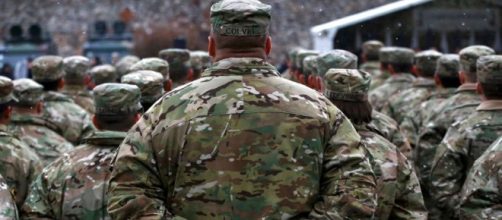It was on a new meeting of their ambassadors in which they rediscovered their differences over Ukraine. "Today we went one step further with an exchange of our respective military positions. Russia informed us about the three new divisions in its Western Military District and NATO reported on the four battalions we are deploying in Poland and the Baltic countries, "NATO Secretary-General Jens Stoltenberg told a news conference after meeting.
He referred to progress in the area of transparency between the two parties since at the last NATO-Russia Council in December; the Alliance gave details of its Trident Juncture and Russia exercise on its own, called Kavkaz.
Opinion of the Allied Secretary General.
These briefings "themselves contribute to predictability and are in the right direction," although they "do not substitute for transparency" in the Vienna document of the Organization for Security and Cooperation in Europe (OSCE) on military exercises and activities, which "We are still working to modernize."
In any case, he said that it is "soon" to determine whether they will hold briefings in advance on their military exercises.
Stoltenberg stressed that NATO maintains a "united position" against Russia: "a strong defense and deterrence combined with dialogue." About the meeting, the first NATO-Russia ambassadorial council this year after the three held in 2016, said it was "long, frank and constructive."
"Allies and Russia continue to have clear disagreements over the crisis in and around Ukraine," he said, adding that the situation there still raises "deep concern". He noted that ceasefire violations have reached "record levels", intense fighting continues and heavy weapons have not withdrawn.
Stoltenberg also recalled that OSCE observers continue to face impediments to their work on the ground. Thus, he called on all parties involved in the Minsk agreements, to pacify the east of Ukraine, to fulfill it fully.
The influence of Russia
"The Allies urged Russia to use its significant influence on the militants to fully fulfill their obligations," he said, adding that they expressed "grave concern" about Russia's recognition of identity documents issued by pro-Russian separatists.
Another issue addressed by the ambassadors was the situation in Afghanistan, where NATO maintains a training mission for the security forces. Stoltenberg said that they addressed "issues of common concern" with Russia and that "although it is not an easy dialogue, it is a commitment to which we are committed."
The Norwegian politician pointed out that although the Alliance suspended its practical cooperation with Russia following its annexation of the Ukrainian peninsula of Crimea, the NATO-Russia Council was never cancel.

